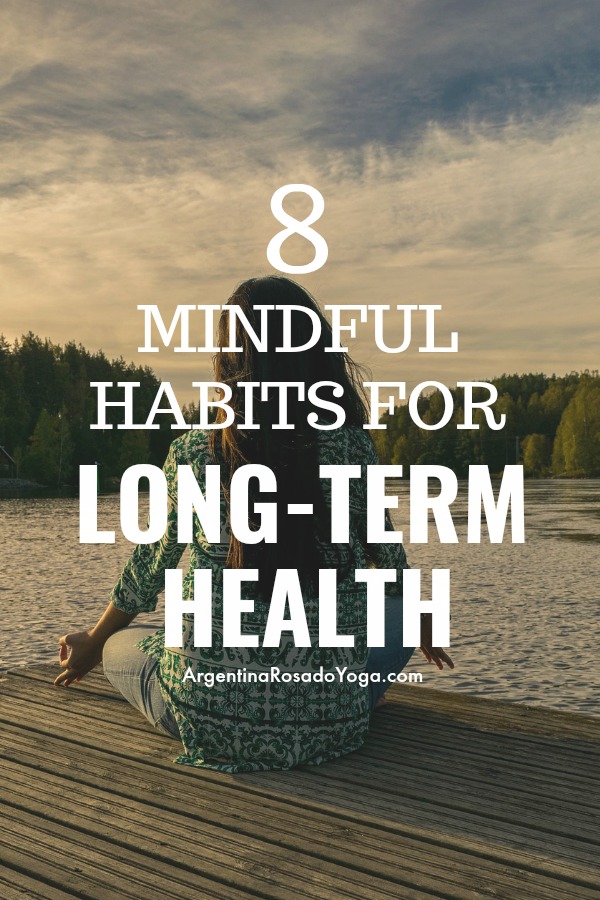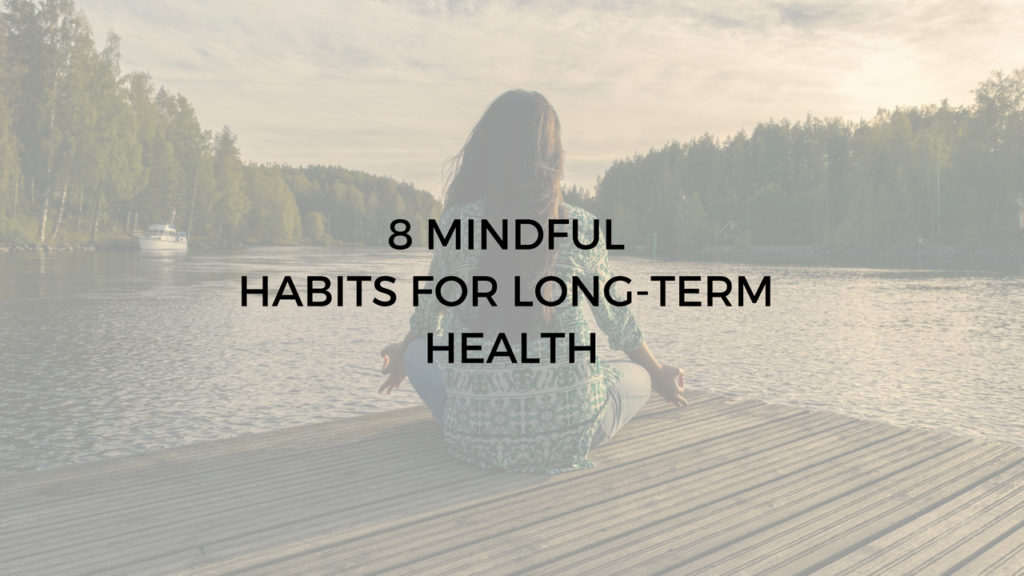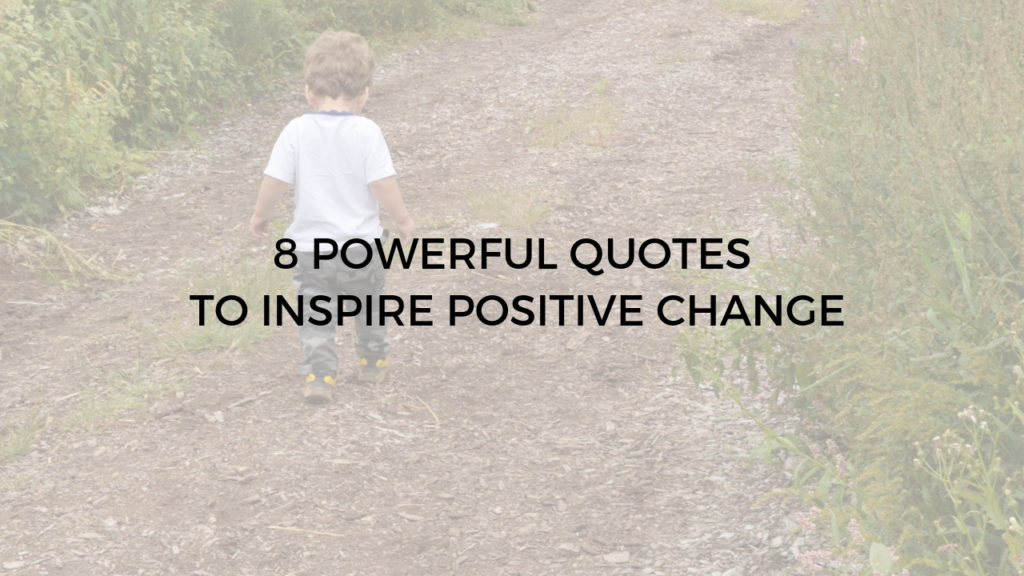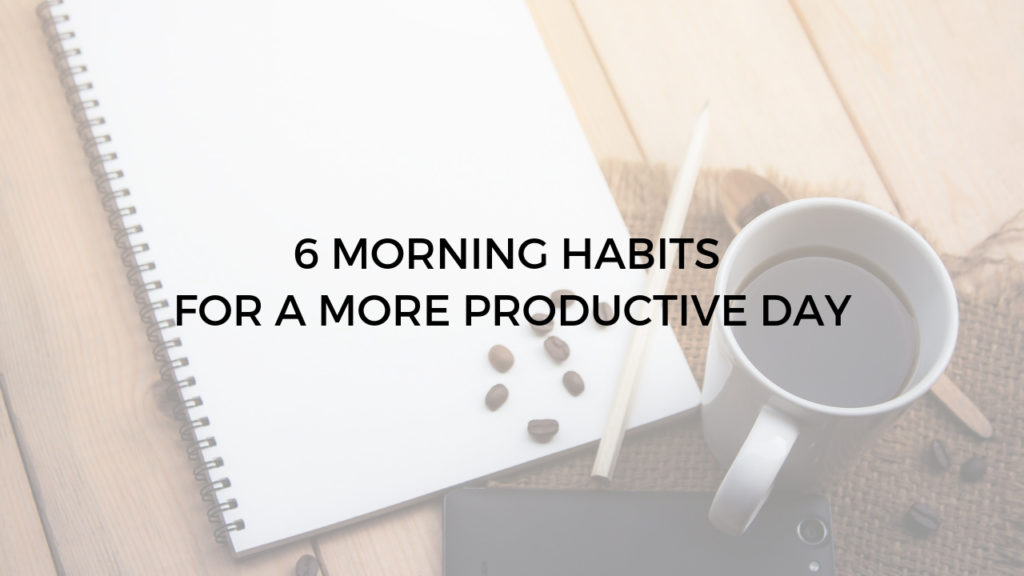We we hear healthy habits, we often think of dieting and exercise. While those are habits we should all aim for, they’re not what this post is about. What I’m talking about here are healthy habits that will benefit us at a more deeper level. They are small, yet powerful and have the potential to make us better persons from the inside out and improving the quality of our lives.

You can think of them as little deposits that you make to your health bank accounts every single day. The more you put in, the better your health gets. Smiling, for example, has been associated with lower blood pressure, stress relief, and pain management. Amazing right? So what if you smiled at a stranger every single day? Imagine the health possibilities.
Here are 8 simple habits that can be done everyday to improve long term health.
1. Move your body
To be clear here, when I say move your body, I don’t mean exercise. I mean, yes you should definitely exercise regularly, but that’s not the point here. What I mean is move your body in situations where you normally wouldn’t. For example, are you one of those who waits, and waits, and waits, just to get a parking spot right up front? Do you take the elevator to the second floor? Or drive your car down the block?
Physically speaking, our bodies are designed for movement. Period. “What you don’t use, you lose.” Low physical activity has been linked to bone loss, obesity, diabetes and other chronic conditions. A goal here would be to find opportunities to move your body in unconventional ways. You can take the stairs once in while, park far away, walk your kids to school, or go for a walk after or before lunch time.
2. Eat more whole foods

In addition to moving the body, we must nourish the body. We live in a world where convenience is more important than health. We go for meals that are quick, cheap, and easy. These meals are called processed foods and are very high in preservatives, chemicals, fructose corn syrup, and sugars, yet very low in essential nutrients.
To cut down processed intake, look for recipes that use whole, fresh ingredients. If possible, spend a little more time making things from scratch rather than adding a box of this, or a can of that. The food will not only taste fresher and better, but you’ll be making a long-term investment towards better health.
3. Practice mindfulness

The health benefits of mindfulness have been backed up by scientific research for quite some time now. Simply put, mindfulness is to be aware of something. When you are aware of the present moment, say your feelings, thoughts, emotions, or behavioral patterns, you are able to transcend the mind and bring these things to light. In other words, the unconscious becomes conscious, and it no longer governs you. This is where the healing begins.
There are many ways to practice mindfulness. Yoga, of course, is one of them. When we practice yoga, we focus on the breath while sensing the physical body (yoga poses). By doing so, we become aware of physical sensations, thoughts, emotions, etc. This is how we “peel the layers” and eventually become enlightened through yoga.
We also practice mindfulness through meditation, which is also part of the yoga practice. When we meditate, we train the mind to focus on one thing (a mantra, affirmation, our breathing, thoughts…) In meditation, we are the observer of what is, and we become aware.
4. Less judgement, more acceptance
Let’s be real for a moment. We all judge. No matter how enlightened we may be. It is human nature and often dominated by our individual upbringing and social environment. But, there is something so peaceful and liberating about the practice of non-judgement. Or better yet, from the practice of accepting others just as they are.
How many times do we scroll through Instagram and judge someone for what they’re wearing or doing? “This person is looking for attention!!!,” we think to ourselves. But what if there’s an underlying reason as to why that person is seeking attention? You better believe there is. What about that bully in school? Perhaps they are bullies because they are being bullied themselves. What would happen if we thought about these things before we judged someone? I strongly believe that the world would be a better place if we did.
Non-judgement isn’t easy, especially when someone is being harmed. But what if, instead of instant judgement, we realize that the person has a story. That there’s an underlying reason why they are being this way. And for that reason, they deserve compassion, less judgement, and more acceptance.
5. Practice self-care
This one may just be a compilation of everything I’m saying here. Sometimes we are so busy with life and taking care of others that we forget about ourselves. Self-care is not selfishness because when we take care of ourselves, we can provide better care for others.
Self-care practices allow us to slow down, reboot, and recharge the mind, body, and spirit. There are many ways to practice self-care. The important thing is to look for practices that will bring us into balance based on our individual needs.
For instance, someone who’s had a long, hectic week will benefit from a slow-moving, chill out activity to help ground the body and mind (restorative yoga, meditation, quiet walk, etc.). On the other hand, someone who’s been sluggish, lying around and not doing much will be benefit from a more active, rigorous practice (running, Vinyasa yoga, etc. Similarly, if you live a fast-paced city, a good self-care practice would be to retreat yourself to a quiet place (i.e. attend a yoga retreat).
6. Spend less on material things, more on meaningful memories

If you take a second and think about the last time you bought something you didn’t need, and the last time you spent quality time with your loved ones or seeing someplace new, the result might be surprising. What about if you only had a few days to live? What would you care more about? The material things you spent so much time and money on, or the loved ones you didn’t get to spend much time with? What about the things you didn’t get to see?
Minimalism is one of the healthiest, more mindful habits you can start. It has been linked to more happiness, less stress, more creativity, sense of freedom, and financial health. So here’s to long-lasting memories, and less useless stuff.
7. More responsibility, less blaming
I’ll tell you a funny story about someone I know. She’s very attached to her phone and rarely turns it off. One time, she was sitting in church and her phone rang. Embarrassed, she became upset and frustrated. “Why do people call me when they know it’s Sunday and I’m at church,?” She thought to herself, and then complained afterwards. Who do you think it’s at fault here, she for not turning off the phone, or the person calling? The answer is super obvious.
When we blame others, we are automatically labeling ourselves as victims. Yes, we cannot control circumstances, but we can control how we react to them and how we proceed with our lives. That is our responsibility, and no one else’s.
8. Be the change, not the preacher

“Be the change you wish to see” is one of my favorite quotes ever. In other words, be an example for others to follow, and treat others as you would like to be treated. For instance, if you want more kindness, be kind to others yourself, instead of telling everyone to be kind. When someone experiences your act of kindness, meaning they are on the receiving end or nearby, that person becomes uplifted and inspired to be kind themselves. It’s a gift that keeps on giving. It’s that simple.
Like you you read?
Join the community, plus get a complimentary 15-minute Yoga Nidra Meditation right in your inbox.



Great post!
I love the idea of moving your body in situations where you normally wouldn’t it. Great tip!